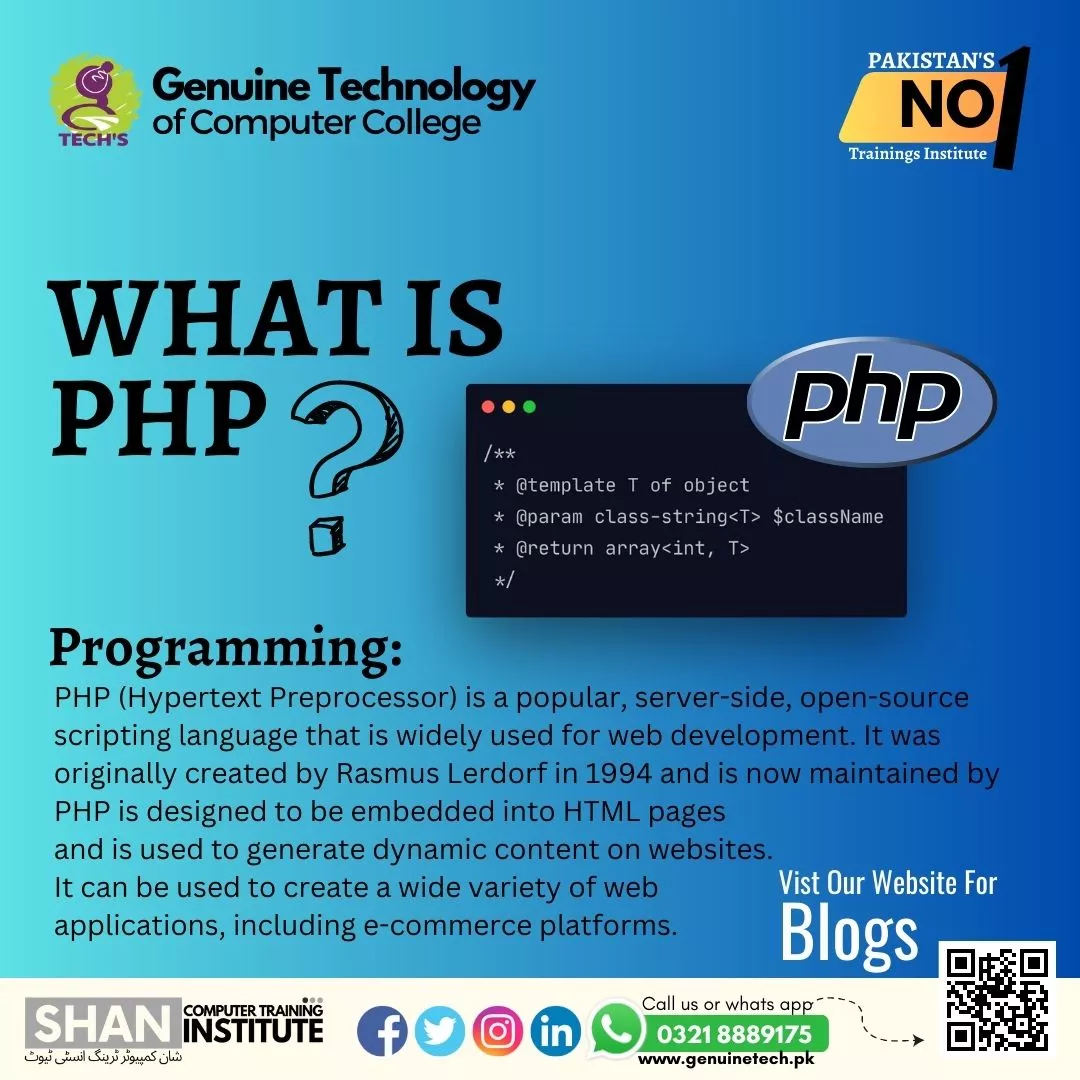The College > Blog > PHP is a Server Side Scripting language
PHP is a Server Side Scripting language
Why PHP is server-side scripting language? Shan College
One of the most wide used server-side scripting language in web development is PHP if you are a beginner you can learn to create dynamic website using programming language PHP which is mainly meant for website development. Genuine Tech is offering back-end web development PHP course after FA for stundents so they can learn to create multifunctional websites and enhance their coding skills you can learn each topic from basic to pro level by practical working on projects and assignment. Upon the completion of this PHP programming training candidates can become a full stack PHP web developer or start their career in any organization on web developer or back-end developer php post. In this PHP programming course you may learn;
- Syntax and variables
- Functions
- Conditionals and loops
- Arrays
- Object-oriented programming
- Working with forms
- Website development
- Database management
Genuine Tech is one of the Top Computer College for PHP web development trainings in which boys and girls can learn to create websites using PHP programming language on the front-end side you may learn HTML, CSS & JavaScript for creating dynamic web pages on the server-side scripting you work on php development create server-side logics, databases and learn to manage database we may provide you training about PHP sessions, file-handling in php, database functions. php regular expressions, input validation in php, inheritance and polymorphism as php object-oriented programming.
Web development is the top computer skill to enhance your coding and programming their is many career opportunities for php developer in all over the world you can learn php with laravel for better opportunities along with this you may learn seo expert course in Lahore to increase the visibility of your website and drive traffic on it for earning money online.
Read from conceptatech.com to get more detail about PHP programming.







